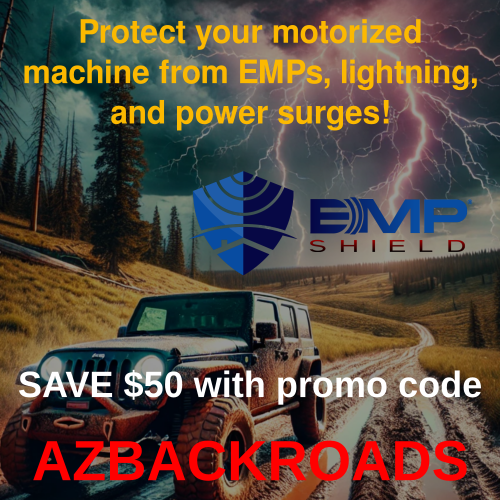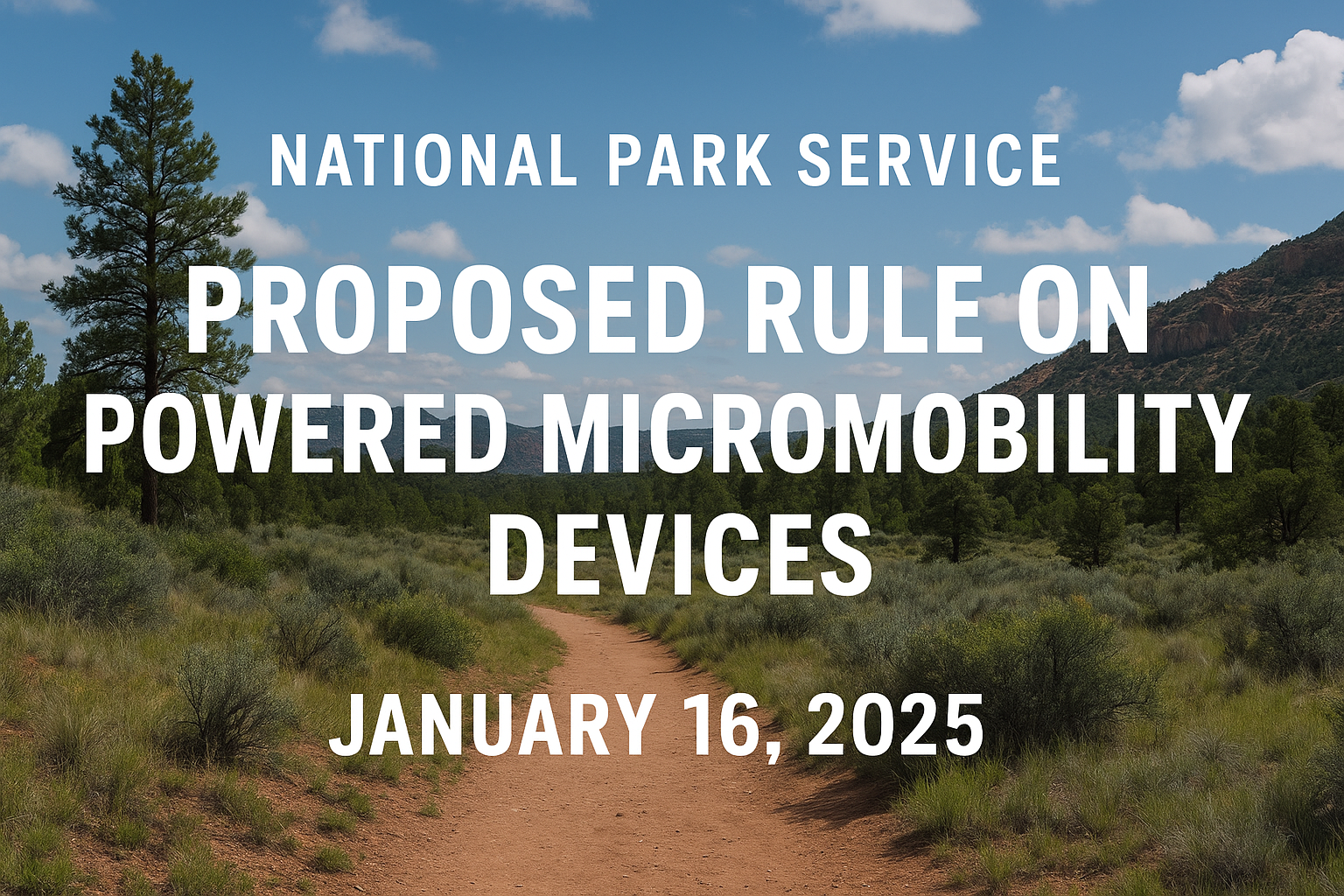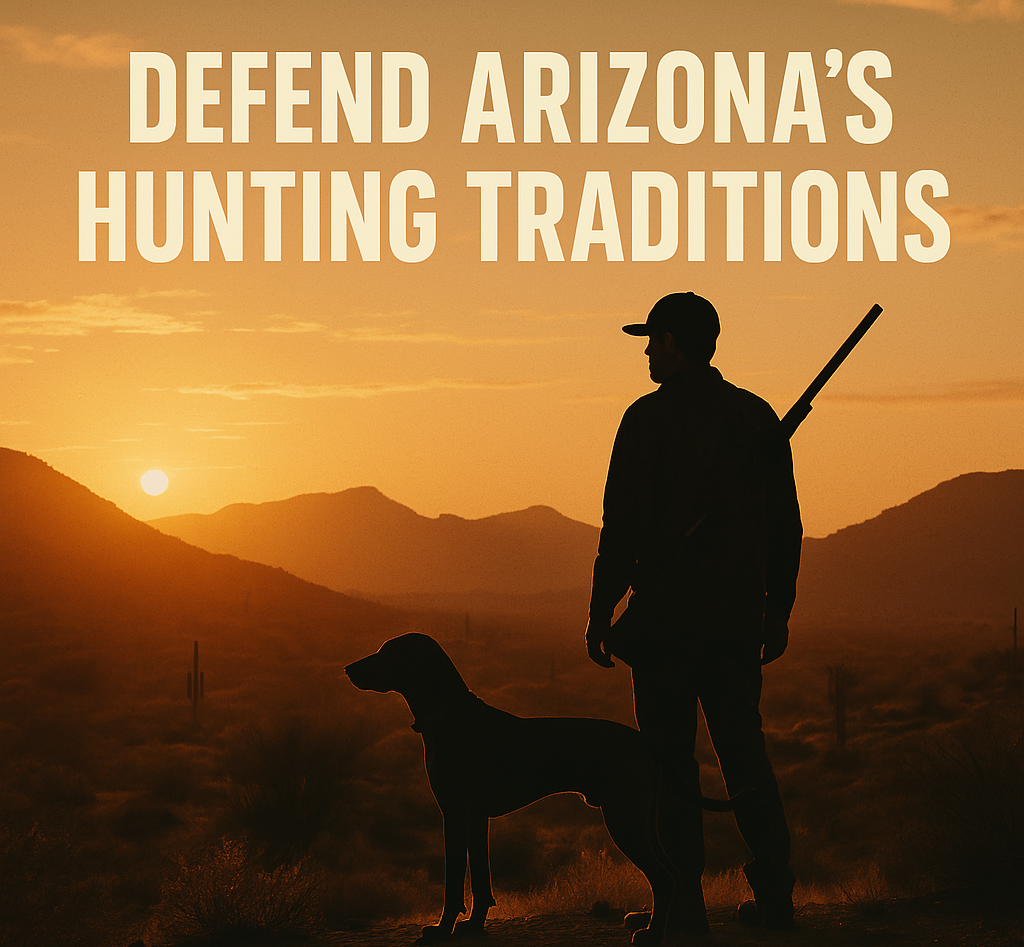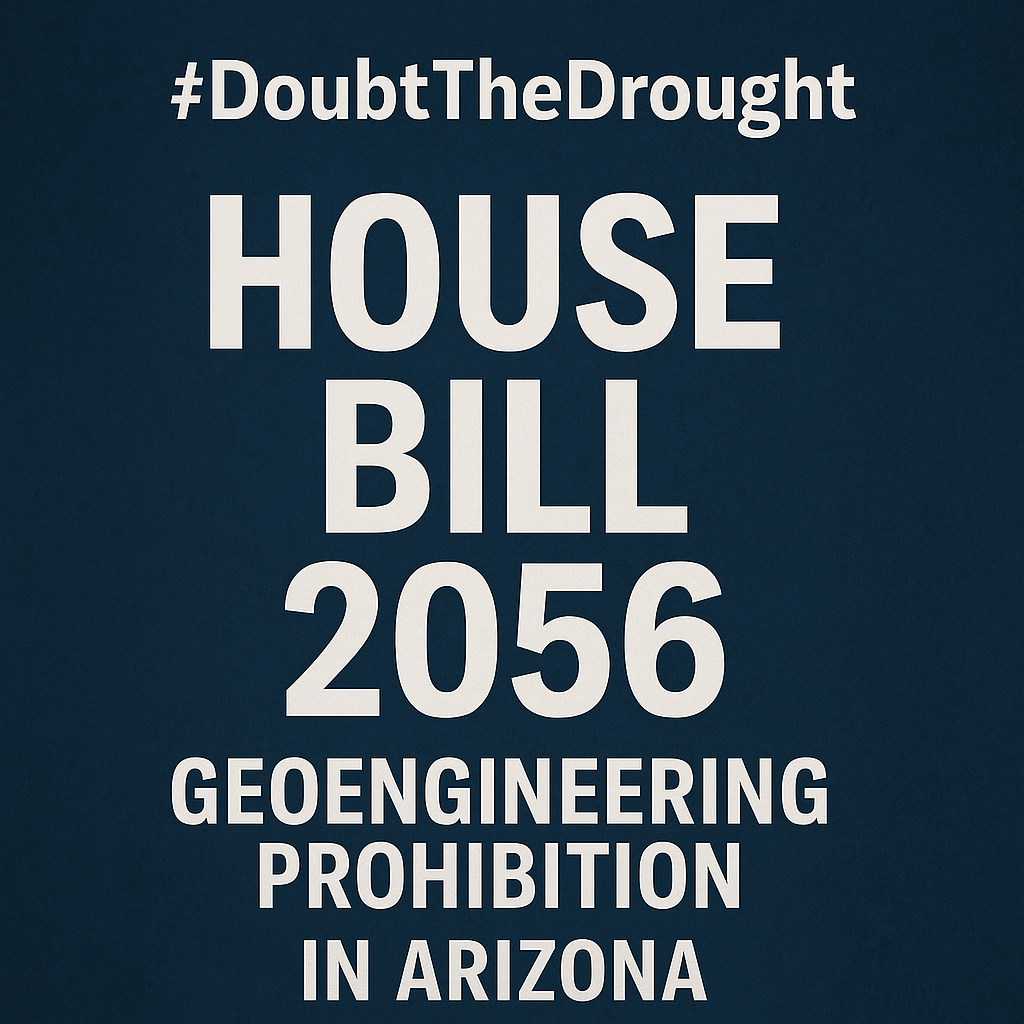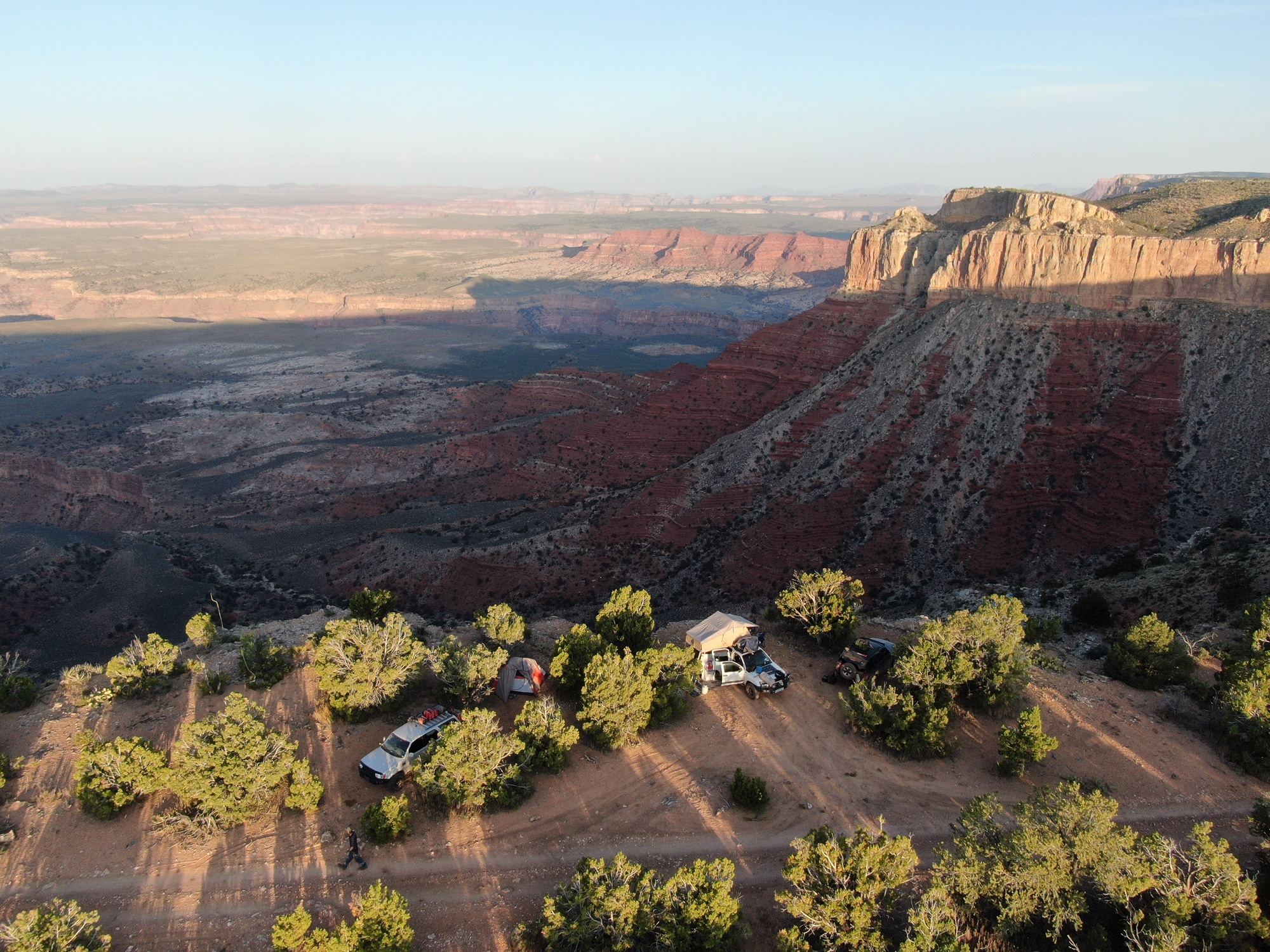Weight Change from 2,500 to 3,500 Lbs
This Bill has been introduced by Republican Senator Frank Carroll, district 28, and cosponsored by Republican Senator Davin Farnsworth, district 10, and Republican Representative David Cook, district 7. The proposed bill will amend sections 28-101, 28-1177, and 28-5801 of the Arizona Revised Statute to increase the weight limit that defines what OHVs must purchase an OHV sticker and pay a vehicle license tax.
Senate Bill 1052 aims to adjust the definition of all-terrain vehicles (ATVs) by increasing the maximum unladen weight from 2,500 pounds to 3,500 pounds.
Currently, an ATV is defined as a vehicle primarily designed for recreational nonhighway all-terrain travel. This includes motor vehicles up to 50 inches in width, with an unladen weight of 1,200 pounds or less, operating on three or more nonhighway tires and used on public highways. Additionally, recreational off-highway vehicles up to 80 inches in width, with an unladen weight of 2,500 pounds or less, traveling on four or more nonhighway tires and equipped with specific safety features, also fall under this category. Operating an ATV or off-highway vehicle in Arizona requires either a resident or nonresident off-highway vehicle user indicia issued by the Arizona Department of Transportation, provided the vehicle is designed primarily for travel over unimproved terrain and has an unladen weight of 2,500 pounds or less.
Provisions
- Increase in Maximum Unladen Weight:
- The bill raises the maximum unladen weight of ATVs and off-highway vehicles subject to registration and vehicle license tax from 2,500 to 3,500 pounds.
- Modification of Definition:
- The definition of an ATV is revised to require a recreational nonhighway all-terrain vehicle to have an unladen weight of 3,500 pounds or less, rather than 2,500 pounds or less.
- Effective Date:
- The bill becomes effective on the general effective date.
In summary, Senate Bill 1052 proposes an adjustment to the definition of ATVs by increasing the maximum allowable unladen weight, thereby impacting registration requirements and vehicle license tax for these vehicles in Arizona.
Call the sponsors of this Bill and your district legislators to voice your opinion
Find the bill information here.
Senator Frank Carroll, District 25 – Phone: 602-926-3249 Email: fcarroll@azleg.gov
Senator David Farnsworth, District 10 – Phone: 602-926-3387 Email: dfarnsworth@azleg.gov
Representative David Cook, District 7 – Phone: 602-926-3249 Email: dcook@azleg.gov
View the text of the Bill
Below is the actual text of the Bill from the State Legislature.
| Senate Engrossed
all-terrain vehicles; definition |
|
State of Arizona Senate Fifty-sixth Legislature Second Regular Session 2024
|
| SENATE BILL 1052 |
|
|
|
|
An Act
amendingsections 28-101, 28-1177 and 28-5801, Arizona RevisedStatutes; relating to transportation.
(TEXT OF BILL BEGINS ON NEXT PAGE)
Be it enacted by the Legislature of the State of Arizona:
Section 1. Section 28-101, Arizona RevisedStatutes, is amended to read:
28-101.
In this title, unless the contextotherwise requires:
1. "Alcohol"means any substance containing any form of alcohol, including ethanol,methanol, propynol and isopropynol.
2. "Alcoholconcentration" if expressed as a percentage means either:
(a) The number of gramsof alcohol per one hundred milliliters of blood.
(b) The number of gramsof alcohol per two hundred ten liters of breath.
3. "All-terrainvehicle" means either of the following:
(a) A motor vehicle thatsatisfies all of the following:
(i) Is designedprimarily for recreational nonhighway all-terrain travel.
(ii) Is fifty or fewerinches in width.
(iii) Has an unladenweight of one thousand two hundred pounds or less.
(iv) Travels on three ormore nonhighway tires.
(v) Is operated on apublic highway.
(b) A recreational off-highwayvehicle that satisfies all of the following:
(i) Is designedprimarily for recreational nonhighway all-terrain travel.
(ii) Is eighty or fewerinches in width.
(iii) Has an unladenweight of two three thousand fivehundred pounds or less.
(iv) Travels on four ormore nonhighway tires.
(v) Has a steering wheelfor steering control.
(vi) Has a rolloverprotective structure.
(vii) Has an occupantretention system.
4. "Authorizedemergency vehicle" means any of the following:
(a) A fire departmentvehicle.
(b) A police vehicle.
(c) An ambulance oremergency vehicle of a municipal department or public service corporation thatis designated or authorized by the department or a local authority.
(d) Any other ambulance,fire truck or rescue vehicle that is authorized by the department in its solediscretion and that meets liability insurance requirements prescribed by thedepartment.
5. "Autocycle"means a three-wheeled motorcycle on which the driver and passengers ridein a fully or partially enclosed seating area that is equipped with a rollcage, safety belts for each occupant and antilock brakes and that is designedto be controlled with a steering wheel and pedals.
6. "Automateddriving system" means the hardware and software that are collectivelycapable of performing the entire dynamic driving task on a sustained basis,regardless of whether it is limited to a specific operational design domain.
7. "Automotiverecycler" means a person that is engaged in the business of buying oracquiring a motor vehicle solely for the purpose of dismantling, selling orotherwise disposing of the parts or accessories and that removes parts forresale from six or more vehicles in a calendar year.
8. "Autonomousvehicle" means a motor vehicle that is equipped with an automated drivingsystem.
9. "Aviationfuel" means all flammable liquids composed of a mixture of selectedhydrocarbons expressly manufactured and blended for the purpose of effectivelyand efficiently operating an internal combustion engine for use in an aircraftbut does not include fuel for jet or turbine powered aircraft.
10. "Bicycle"means a device, including a racing wheelchair, that is propelled by human powerand on which a person may ride and that has either:
(a) Two tandem wheels,either of which is more than sixteen inches in diameter.
(b) Three wheels incontact with the ground, any of which is more than sixteen inches in diameter.
11. "Board"means the transportation board.
12. "Bus"means a motor vehicle designed for carrying sixteen or more passengers,including the driver.
13. "Businessdistrict" means the territory contiguous to and including a highway ifthere are buildings in use for business or industrial purposes within any sixhundred feet along the highway, including hotels, banks or office buildings,railroad stations and public buildings that occupy at least three hundred feetof frontage on one side or three hundred feet collectively on both sides of thehighway.
14. "Certificate ofownership" means a paper or an electronic record that is issued in anotherstate or a foreign jurisdiction and that indicates ownership of a vehicle.
15. "Certificate oftitle" means a paper document or an electronic record that is issued bythe department and that indicates ownership of a vehicle.
16. "Combination ofvehicles" means a truck or truck tractor and semitrailer and any trailerthat it tows but does not include a forklift designed for the purpose ofloading or unloading the truck, trailer or semitrailer.
17. "Controlledsubstance" means a substance so classified under section 102(6) of thecontrolled substances act (21 United States Code section 802(6)) and includesall substances listed in schedules I through V of 21 Code of FederalRegulations part 1308.
18. "Conviction"means:
(a) An unvacatedadjudication of guilt or a determination that a person violated or failed tocomply with the law in a court of original jurisdiction or by an authorizedadministrative tribunal.
(b) An unvacatedforfeiture of bail or collateral deposited to secure the person’s appearance incourt.
(c) A plea of guilty orno contest accepted by the court.
(d) The payment of afine or court costs.
19. "Countyhighway" means a public road that is constructed and maintained by acounty.
20. "Dealer"means a person who is engaged in the business of buying, selling or exchangingmotor vehicles, trailers or semitrailers and who has an established place ofbusiness and has paid fees pursuant to section 28-4302.
21. "Department"means the department of transportation acting directly or through its dulyauthorized officers and agents.
22. "Digitalnetwork or software application" has the same meaning prescribed insection 28-9551.
23. "Director"means the director of the department of transportation.
24. "Drive" meansto operate or be in actual physical control of a motor vehicle.
25. "Driver"means a person who drives or is in actual physical control of a vehicle.
26. "Driverlicense" means a license that is issued by a state to an individual andthat authorizes the individual to drive a motor vehicle.
27. "Dynamicdriving task":
(a) Means all of thereal-time operational and tactical functions required to operate avehicle in on-road traffic.
(b) Includes:
(i) Lateral vehiclemotion control by steering.
(ii) Longitudinal motioncontrol by acceleration and deceleration.
(iii) Monitoring thedriving environment by object and event detection, recognition, classificationand response preparation.
(iv) Object and eventresponse execution.
(v) Maneuver planning.
(vi) Enhancingconspicuity by lighting, signaling and gesturing.
(c) Does not includestrategic functions such as trip scheduling and selecting destinations andwaypoints.
28. "Electricbicycle" means a bicycle or tricycle that is equipped with fully operablepedals and an electric motor of less than seven hundred fifty watts and thatmeets the requirements of one of the following classes:
(a) "Class 1electric bicycle" means a bicycle or tricycle that is equipped with anelectric motor that provides assistance only when the rider is pedaling andthat ceases to provide assistance when the bicycle or tricycle reaches thespeed of twenty miles per hour.
(b) "Class 2electric bicycle" means a bicycle or tricycle that is equipped with an electricmotor that may be used exclusively to propel the bicycle or tricycle and thatis not capable of providing assistance when the bicycle or tricycle reaches thespeed of twenty miles per hour.
(c) "Class 3electric bicycle" means a bicycle or tricycle that is equipped with anelectric motor that provides assistance only when the rider is pedaling andthat ceases to provide assistance when the bicycle or tricycle reaches thespeed of twenty-eight miles per hour.
29. "Electricminiature scooter" means a device that:
(a) Weighs less thanthirty pounds.
(b) Has two or threewheels.
(c) Has handlebars.
(d) Has a floorboard onwhich a person may stand while riding.
(e) Is powered by anelectric motor or human power, or both.
(f) Has a maximum speedthat does not exceed ten miles per hour, with or without human propulsion, on apaved level surface.
30. "Electricpersonal assistive mobility device" means a self-balancing devicewith one wheel or two nontandem wheels and an electric propulsion system thatlimits the maximum speed of the device to fifteen miles per hour or less andthat is designed to transport only one person.
31. "Electricstandup scooter":
(a) Means a device that:
(i) Weighs less thanseventy-five pounds.
(ii) Has two or threewheels.
(iii) Has handlebars.
(iv) Has a floorboard onwhich a person may stand while riding.
(v) Is powered by anelectric motor or human power, or both.
(vi) Has a maximum speedthat does not exceed twenty miles per hour, with or without human propulsion, ona paved level surface.
(b) Does not include anelectric miniature scooter.
32. "Evidence" includes both of thefollowing:
(a) A display on a wireless communication device ofa department-generated driver license, nonoperating identificationlicense, vehicle registration card or other official record of the departmentthat is presented to a law enforcement officer or in a court or anadministrative proceeding.
(b) An electronic ordigital license plate authorized pursuant to section 28-364.
33. "Farm"means any lands primarily used for agriculture production.
34. "Farmtractor" means a motor vehicle designed and used primarily as a farmimplement for drawing implements of husbandry.
35. "Foreignvehicle" means a motor vehicle, trailer or semitrailer that is broughtinto this state other than in the ordinary course of business by or through amanufacturer or dealer and that has not been registered in this state.
36. "Fullyautonomous vehicle" means an autonomous vehicle that is equipped with anautomated driving system designed to function as a level four or five systemunder SAE J3016 and that may be designed to function either:
(a) Solely by use of theautomated driving system.
(b) By a human driverwhen the automated driving system is not engaged.
37. "Golfcart" means a motor vehicle that has not less than three wheels in contactwith the ground, that has an unladen weight of less than one thousand eighthundred pounds, that is designed to be and is operated at not more than twenty-fivemiles per hour and that is designed to carry not more than four personsincluding the driver.
38. "Hazardousmaterial" means a material, and its mixtures or solutions, that the UnitedStates department of transportation determines under 49 Code of FederalRegulations is, or any quantity of a material listed as a select agent or toxinunder 42 Code of Federal Regulations part 73 that is, capable of posing anunreasonable risk to health, safety and property if transported in commerce andthat is required to be placarded or marked as required by the department’ssafety rules prescribed pursuant to chapter 14 of this title.
39. "Humandriver" means a natural person in the vehicle who performs in real timeall or part of the dynamic driving task or who achieves a minimal riskcondition for the vehicle.
40. "Implement ofhusbandry" means a vehicle that is designed primarily for agriculturalpurposes and that is used exclusively in the conduct of agriculturaloperations, including an implement or vehicle whether self-propelled orotherwise that meets both of the following conditions:
(a) Is used solely foragricultural purposes including the preparation or harvesting of cotton,alfalfa, grains and other farm crops.
(b) Is only incidentallyoperated or moved on a highway whether as a trailer or self-propelledunit. For the purposes of this subdivision, "incidentallyoperated or moved on a highway" means travel between a farm and anotherpart of the same farm, from one farm to another farm or between a farm and aplace of repair, supply or storage.
41. "Limousine"means a motor vehicle providing prearranged ground transportation service foran individual passenger, or a group of passengers, that is arranged in advanceor is operated on a regular route or between specified points and includesground transportation under a contract or agreement for services that includesa fixed rate or time and is provided in a motor vehicle with a seating capacitynot exceeding fifteen passengers including the driver.
42. "Liveryvehicle" means a motor vehicle that:
(a) Has a seatingcapacity not exceeding fifteen passengers including the driver.
(b) Provides passengerservices for a fare determined by a flat rate or flat hourly rate betweengeographic zones or within a geographic area.
(c) Is available forhire on an exclusive or shared ride basis.
(d) May do any of thefollowing:
(i) Operate on a regularroute or between specified places.
(ii) Offer prearrangedground transportation service as defined in section 28-141.
(iii) Offer on demandground transportation service pursuant to a contract with a public airport,licensed business entity or organization.
43. "Localauthority" means any county, municipal or other local board or bodyexercising jurisdiction over highways under the constitution and laws of thisstate.
44. "Manufacturer"means a person engaged in the business of manufacturing motor vehicles,trailers or semitrailers.
45. "Minimal riskcondition":
(a) Means a condition towhich a human driver or an automated driving system may bring a vehicle inorder to reduce the risk of a crash when a given trip cannot or should not becompleted.
(b) Includes bringingthe vehicle to a complete stop.
46. "Moped"means a bicycle, not including an electric bicycle, an electric miniaturescooter or an electric standup scooter, that is equipped with a helper motor ifthe vehicle has a maximum piston displacement of fifty cubic centimeters orless, a brake horsepower of one and one-half or less and a maximum speedof twenty-five miles per hour or less on a flat surface with less than aone percent grade.
47. "Motorcycle"means a motor vehicle that has a seat or saddle for the use of the rider andthat is designed to travel on not more than three wheels in contact with theground but excludes a tractor, an electric bicycle, an electric miniaturescooter, an electric standup scooter and a moped.
48. "Motor drivencycle" means a motorcycle, including every motor scooter, with a motorthat produces not more than five horsepower but does not include an electricbicycle, an electric miniature scooter or an electric standup scooter.
49. "Motorizedquadricycle" means a self-propelled motor vehicle to which all of thefollowing apply:
(a) The vehicle is self-propelledby an emission-free electric motor and may include pedals operated by thepassengers.
(b) The vehicle has atleast four wheels in contact with the ground.
(c) The vehicle seats atleast eight passengers, including the driver.
(d) The vehicle isoperable on a flat surface using solely the electric motor without assistancefrom the pedals or passengers.
(e) The vehicle is acommercial motor vehicle as defined in section 28-5201.
(f) The vehicle is alimousine operating under a vehicle for hire company permit issued pursuant tosection 28-9503.
(g) The vehicle ismanufactured by a motor vehicle manufacturer that is licensed pursuant tochapter 10 of this title.
(h) The vehicle complieswith the definition and standards for low-speed vehicles set forth in 49Code of Federal Regulations sections 571.3(b) and 571.500, respectively.
50. "Motorvehicle":
(a) Means either:
(i) A self-propelledvehicle.
(ii) For the purposes ofthe laws relating to the imposition of a tax on motor vehicle fuel, a vehiclethat is operated on the highways of this state and that is propelled by the useof motor vehicle fuel.
(b) Does not include ascrap vehicle, a personal delivery device, a personal mobile cargo carryingdevice, a motorized wheelchair, an electric personal assistive mobility device,an electric bicycle, an electric miniature scooter, an electric standup scooteror a motorized skateboard. For the purposes of this subdivision:
(i) "Motorizedskateboard" means a self-propelled device that does not havehandlebars and that has a motor, a deck on which a person may ride and at leasttwo tandem wheels in contact with the ground.
(ii) "Motorizedwheelchair" means a self-propelled wheelchair that is used by aperson for mobility.
51. "Motor vehiclefuel" includes all products that are commonly or commercially known orsold as gasoline, including casinghead gasoline, natural gasoline and allflammable liquids, and that are composed of a mixture of selected hydrocarbonsexpressly manufactured and blended for the purpose of effectively andefficiently operating internal combustion engines. Motor vehiclefuel does not include inflammable liquids that are specifically manufacturedfor racing motor vehicles and that are distributed for and used by racing motorvehicles at a racetrack, use fuel as defined in section 28-5601, aviationfuel, fuel for jet or turbine powered aircraft or the mixture created at theinterface of two different substances being transported through a pipeline,commonly known as transmix.
52. "Neighborhoodelectric shuttle":
(a) Means a self-propelledelectrically powered motor vehicle to which all of the following apply:
(i) The vehicle isemission free.
(ii) The vehicle has atleast four wheels in contact with the ground.
(iii) The vehicle iscapable of transporting at least eight passengers, including the driver.
(iv) The vehicle is acommercial motor vehicle as defined in section 28-5201.
(v) The vehicle is avehicle for hire as defined in section 28-9501 and operates under avehicle for hire company permit issued pursuant to section 28-9503.
(vi) The vehiclecomplies with the definition and standards for low-speed vehicles setforth in 49 Code of Federal Regulations sections 571.3(b) and 571.500,respectively.
(b) Includes a vehiclethat meets the standards prescribed in subdivision (a) of this paragraph andthat has been modified after market and not by the manufacturer to transport upto fifteen passengers, including the driver.
53. "Neighborhoodelectric vehicle" means a self-propelled electrically powered motorvehicle to which all of the following apply:
(a) The vehicle isemission free.
(b) The vehicle has atleast four wheels in contact with the ground.
(c) The vehicle complieswith the definition and standards for low-speed vehicles, unless exceptedor exempted under federal law, set forth in 49 Code of Federal Regulationssections 571.3(b) and 571.500, respectively.
54. "Neighborhoodoccupantless electric vehicle" means a neighborhood electric vehicle thatis not designed, intended or marketed for human occupancy.
55. "Nonresident"means a person who is not a resident of this state as defined in section 28-2001.
56. "Off-roadrecreational motor vehicle" means a motor vehicle that is designedprimarily for recreational nonhighway all-terrain travel and that is notoperated on a public highway. Off-road recreational motorvehicle does not mean a motor vehicle used for construction, building trade,mining or agricultural purposes.
57. "Operational design domain":
(a) Means operating conditions under which a givenautomated driving system is specifically designed to function.
(b) Includes roadway types, speed range,environmental conditions, such as weather or time of day, and other domainconstraints.
58. "Operator"means a person who drives a motor vehicle on a highway, who is in actualphysical control of a motor vehicle on a highway or who is exercising controlover or steering a vehicle being towed by a motor vehicle.
59. "Owner"means:
(a) A person who holdsthe legal title of a vehicle.
(b) If a vehicle is thesubject of an agreement for the conditional sale or lease with the right ofpurchase on performance of the conditions stated in the agreement and with animmediate right of possession vested in the conditional vendee or lessee, theconditional vendee or lessee.
(c) If a mortgagor of avehicle is entitled to possession of the vehicle, the mortgagor.
60. "Pedestrian"means any person afoot. A person who uses an electric personalassistive mobility device or a manual or motorized wheelchair is considered apedestrian unless the manual wheelchair qualifies as a bicycle. Forthe purposes of this paragraph, "motorized wheelchair" means a self-propelledwheelchair that is used by a person for mobility.
61. "Personal delivery device":
(a) Means a device that is both of the following:
(i) Manufactured for transporting cargo and goods inan area described in section 28-1225.
(ii) Equipped with automated driving technology,including software and hardware, that enables the operation of the device withthe remote support and supervision of a human.
(b) Does not include a personal mobile cargocarrying device.
62. "Personal mobile cargo carryingdevice" means an electronically powered device that:
(a) Is operatedprimarily on sidewalks and within crosswalks and that is designed to transportproperty.
(b) Weighs less thaneighty pounds, excluding cargo.
(c) Operates at amaximum speed of twelve miles per hour.
(d) Is equipped withtechnology to transport personal property with the active monitoring of aproperty owner and that is primarily designed to remain within twenty-fivefeet of the property owner.
(e) Is equipped with abraking system that when active or engaged enables the personal mobile cargocarrying device to come to a controlled stop.
63. "Power sweeper" means an implement,with or without motive power, that is only incidentally operated or moved on astreet or highway and that is designed for the removal of debris, dirt, gravel,litter or sand whether by broom, vacuum or regenerative air system fromasphaltic concrete or cement concrete surfaces, including parking lots,highways, streets and warehouses, and a vehicle on which the implement ispermanently mounted.
64. "Public transit"means the transportation of passengers on scheduled routes by means of aconveyance on an individual passenger fare-paying basis excludingtransportation by a sightseeing bus, school bus or taxi or a vehicle notoperated on a scheduled route basis.
65. "Reconstructedvehicle" means a vehicle that has been assembled or constructed largely bymeans of essential parts, new or used, derived from vehicles or makes ofvehicles of various names, models and types or that, if originally otherwiseconstructed, has been materially altered by the removal of essential parts orby the addition or substitution of essential parts, new or used, derived fromother vehicles or makes of vehicles. For the purposes of thisparagraph, "essential parts" means integral and body parts, theremoval, alteration or substitution of which will tend to conceal the identityor substantially alter the appearance of the vehicle.
66. "Residencedistrict" means the territory contiguous to and including a highway notcomprising a business district if the property on the highway for a distance ofthree hundred feet or more is in the main improved with residences orresidences and buildings in use for business.
67. "Right-of-way"when used within the context of the regulation of the movement of traffic on ahighway means the privilege of the immediate use of thehighway. Right-of-way when used within the context ofthe real property on which transportation facilities and appurtenances to thefacilities are constructed or maintained means the lands or interest in landswithin the right-of-way boundaries.
68. "SAEJ3016" means surface transportation recommended practice J3016 taxonomyand definitions for terms related to driving automation systems for on-roadmotor vehicles published by SAE international in June 2018.
69. "Schoolbus" means a motor vehicle that is designed for carrying more than tenpassengers and that is either:
(a) Owned by any publicor governmental agency or other institution and operated for the transportationof children to or from home or school on a regularly scheduled basis.
(b) Privately owned andoperated for compensation for the transportation of children to or from home orschool on a regularly scheduled basis.
70. "Scrap metal dealer" has the samemeaning prescribed in section 44-1641.
71. "Scrap vehicle" has the same meaningprescribed in section 44-1641.
72. "Semitrailer"means a vehicle that is with or without motive power, other than a pole traileror single-axle tow dolly, that is designed for carrying persons orproperty and for being drawn by a motor vehicle and that is constructed so thatsome part of its weight and that of its load rests on or is carried by anothervehicle. For the purposes of this paragraph, "pole trailer" has thesame meaning prescribed in section 28-601.
73. "Single-axletow dolly" means a nonvehicle device that is drawn by a motor vehicle,that is designed and used exclusively to transport another motor vehicle and onwhich the front or rear wheels of the drawn motor vehicle are mounted on thetow dolly while the other wheels of the drawn motor vehicle remain in contactwith the ground.
74. "State"means a state of the United States and the District of Columbia.
75. "Statehighway" means a state route or portion of a state route that is acceptedand designated by the board as a state highway and that is maintained by thestate.
76. "Stateroute" means a right-of-way whether actually used as a highwayor not that is designated by the board as a location for the construction of astate highway.
77. "Street"or "highway" means the entire width between the boundary lines ofevery way if a part of the way is open to the use of the public for purposes ofvehicular travel.
78. "Taxi"means a motor vehicle that has a seating capacity not exceeding fifteenpassengers, including the driver, that provides passenger services and that:
(a) Does not primarilyoperate on a regular route or between specified places.
(b) Offers localtransportation for a fare determined on the basis of the distance traveled orprearranged ground transportation service as defined in section 28-141for a predetermined fare.
79. "Title transferform" means a paper or an electronic form that is prescribed by thedepartment for the purpose of transferring a certificate of title from oneowner to another owner.
80. "Trafficsurvival school" means a school that is licensed pursuant to chapter 8,article 7.1 of this title and that offers educational sessions that aredesigned to improve the safety and habits of drivers and that are approved bythe department.
81. "Trailer"means a vehicle that is with or without motive power, other than a pole traileror single-axle tow dolly, that is designed for carrying persons orproperty and for being drawn by a motor vehicle and that is constructed so thatno part of its weight rests on the towing vehicle. A semitrailerequipped with an auxiliary front axle commonly known as a dolly is deemed to bea trailer. For the purposes of this paragraph, "poletrailer" has the same meaning prescribed in section 28-601.
82. "Transportationnetwork company" has the same meaning prescribed in section 28-9551.
83. "Transportationnetwork company vehicle" has the same meaning prescribed in section 28-9551.
84. "Transportationnetwork service" has the same meaning prescribed in section 28-9551.
85. "Truck"means a motor vehicle designed or used primarily for the carrying of propertyother than the effects of the driver or passengers and includes a motor vehicleto which has been added a box, a platform or other equipment for such carrying.
86. "Trucktractor" means a motor vehicle that is designed and used primarily fordrawing other vehicles and that is not constructed to carry a load other than apart of the weight of the vehicle and load drawn.
87. "Vehicle":
(a) Means a device in,on or by which a person or property is or may be transported or drawn on apublic highway.
(b) Does not include:
(i) Electric bicycles, electric miniature scooters,electric standup scooters and devices moved by human power.
(ii) Devices usedexclusively on stationary rails or tracks.
(iii) Personal deliverydevices.
(iv) Scrap vehicles.
(v) Personal mobilecargo carrying devices.
88. "Vehicle transporter" means either:
(a) A truck tractor capable of carrying a load anddrawing a semitrailer.
(b) A truck tractor with a stinger-steeredfifth wheel capable of carrying a load and drawing a semitrailer or a trucktractor with a dolly mounted fifth wheel that is securely fastened to the trucktractor at two or more points and that is capable of carrying a load anddrawing a semitrailer.
Sec. 2. Section 28-1177, Arizona RevisedStatutes, is amended to read:
A. A person shall not operate or allow the operationof an all-terrain vehicle or an off-highway vehicle in this statewithout either a resident or nonresident off-highway vehicle user indiciaissued by the department if the all-terrain vehicle or off-highwayvehicle meets both of the following criteria:
1. Is designed by the manufacturer primarily fortravel over unimproved terrain.
2. Has an unladen weight of two
B. A person shall apply to the department oftransportation for a resident or nonresident off-highway vehicle userindicia by submitting an application prescribed by the department oftransportation and a user fee for the indicia in an amount to be determined bythe director of the department of transportation in cooperation with thedirector of the Arizona game and fish department and the Arizona state parksboard. The resident or nonresident off-highway vehicle userindicia is valid for one year from the date of issuance and may be renewed.The department shall prescribe by rule the design and placement of theindicia.
C. When a person pays for a resident off-highwayvehicle user indicia pursuant to this section, the person may request a motorvehicle registration if the vehicle meets all equipment requirements to beoperated on a highway pursuant to article 16 of this chapter. If a personsubmits a signed affidavit to the department affirming that the vehicle meetsall of the equipment requirements for highway use and that the vehicle will beoperated primarily off of highways, the department shall register the vehiclefor highway use and the vehicle owner is not required to pay the registrationfee prescribed in section 28-2003. This subsection does notapply to vehicles that as produced by the manufacturer meet the equipmentrequirements to be operated on a highway pursuant to article 16 of thischapter.
D. The director shall deposit, pursuant to sections35-146 and 35-147, seventy percent of the user fees collectedpursuant to this section in the off-highway vehicle recreation fund establishedby section 28-1176 and thirty percent of the user fees collected pursuantto this section in the Arizona highway user revenue fund.
E. The Arizona game and fish department may providefor the purchase of nonresident off-highway vehicle user indicia and mayimpose an additional service fee in an amount to be determined by the Arizonagame and fish commission by rule. The Arizona game and fishdepartment shall deposit, pursuant to sections 35-146 and 35-147,the service fees collected pursuant to this subsection in the game and fishfund established by section 17-261.
F. An occupant of an off-highway vehicle with aresident or nonresident off-highway vehicle user indicia issued pursuantto this section who crosses state trust lands must comply with all of the rulesand requirements under a state trust land recreational permit. Alloccupants of an off-highway vehicle with a resident or nonresident off-highwayvehicle user indicia shall obtain a state trust land recreational permit fromthe state land department for all other authorized recreational activities onstate trust land.
G. This section does not apply to off-highwayvehicles, all-terrain vehicles or off-road recreational motorvehicles that are used off-highway exclusively for agricultural, ranching,construction, mining, mining exploration or building trade purposes.
H. In consultation with the department oftransportation, the Arizona game and fish department may adopt rules necessaryto implement this section.
Sec. 3. Section 28-5801, Arizona Revised Statutes, is amended to read:
28-5801.
A. At the time ofapplication for and before registration each year of a vehicle, the registeringofficer shall collect the vehicle license tax imposed by article IX, section11, Constitution of Arizona. On the taxpayer’s vehicle license taxbill, the registering officer shall provide the taxpayer with the following:
1. Information showing theamount of the vehicle license tax that each category of recipient will receiveand the amount that is owed by the taxpayer.
2. The amount of vehiclelicense tax the taxpayer would pay pursuant to section 28-5805 if thetaxpayer’s motor vehicle was powered by alternative fuel.
B. Except as provided in subsections C, D and E ofthis section:
1. During the first twelve months of the life of avehicle as determined by its initial registration, the vehicle license tax isbased on each $100 in value, the value of the vehicle is sixty percent of themanufacturer’s base retail price of the vehicle and the vehicle license taxrate for each of the recipients is as follows:
(a) The rate for theArizona highway user revenue fund is $1.26.
(b) The rate for thecounty general fund is $.69.
(c) The rate for countiesfor any purposes related to transportation, as determined by the board ofsupervisors, is $.16.
(d) The rate forincorporated cities and towns is $.69.
2. During each succeedingtwelve-month period, the vehicle license tax is based on each $100 in value,the value of the vehicle is 16.25 percent less than the value for the precedingtwelve-month period and the vehicle license tax rate for each of the recipientsis as follows:
(a) The rate for theArizona highway user revenue fund is $1.30.
(b) The rate for thecounty general fund is $.71.
(c) The rate for countiesfor the same use as highway user revenue fund monies is $.17.
(d) The rate forincorporated cities and towns is $.71.
3. The minimum amount ofthe vehicle license tax computed under this section is $10 per year for eachvehicle that is subject to the tax. If the product of all of the ratesprescribed in paragraph 1 or 2 of this subsection is less than $10, the vehiclelicense tax is $10. The vehicle license tax collected pursuant tothis paragraph shall be distributed to the recipients prescribed in thissubsection based on the percentage of each recipient’s rate to the sum of allof the rates.
C. The vehicle license taxis as follows for noncommercial trailers that are not travel trailers and thatare ten thousand pounds or less gross vehicle weight:
1. On initialregistration, a onetime vehicle license tax of $105.
2. On renewal ofregistration, a onetime vehicle license tax of $70.
D. The vehicle license taxis as follows for a trailer or semitrailer that is not a travel trailer andthat exceeds ten thousand pounds gross vehicle weight:
1. On initialregistration, a onetime vehicle license tax of $555.
2. On renewal ofregistration or if previously registered in another state, a onetime vehiclelicense tax of:
(a) If the trailer’s orsemitrailer’s model year is less than six years old, $355.
(b) If the trailer’s orsemitrailer’s model year is at least six years old, $100.
E. The vehicle license tax for an all-terrainvehicle or off-highway vehicle as defined in section 28-1171 is $3if the all-terrain vehicle or off-highway vehicle meets both of the followingcriteria:
1. Is designed by the manufacturer primarily fortravel over unimproved terrain.
2. Has an unladen weight of two
F. The vehicle license taxcollected pursuant to subsection C, D or E of this section shall be distributedto the recipients prescribed in subsection B of this section based on thepercentage of each recipient’s rate to the sum of all of the rates.
G. For the purposes of subsections C and D of thissection, "travel trailer" has the same meaning prescribed in section28-2003.


